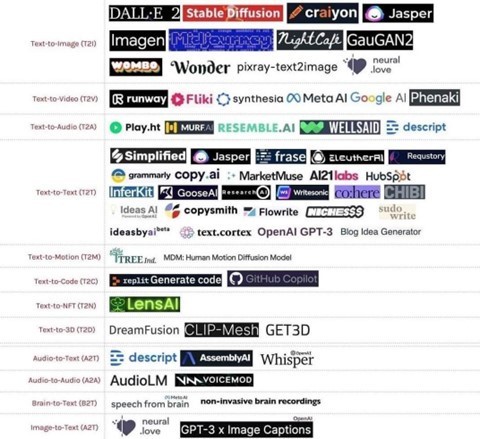- blog
- Technology
Three weeks ago, I attended the World Economic Forum in Davos. As the week progressed, it became clear that business — and world leaders were not just talking about geopolitics, the climate crisis, energy challenges, and war but also about the influence of AI.
ChatGPT also has Google spooked. The New York Times reported that Google founders Larry Page and Sergey Brin held several emergency meetings with company executives about OpenAI's new chatbot, which could threaten Google’s $149 billion per annum search business. Just this week, CEO Sundar Pichai introduced Google’s answer: a new conversational AI it calls Bard. Microsoft announced a $10 billion investment in ChatGPT’s developer, OpenAI. So clearly, something serious is up.
With all the attention on the rise of AI, I have been pondering what this will mean for the role of brand, and below I've jotted down my thoughts:
1. These days, trust in institutions, in general, has been in decline. The greater trust in ‘businesses' suggests that a personal/human relationship is greatly valued in these times of uncertainty and mistrust. According to Edelman's latest Trust Barometer, businesses are the institution most viewed as both competent and ethical. How will we be able to maintain and build trust if we can no longer distinguish (opinionated) AI-generated content from real human content?
2. 'ChatGPT' is already becoming the acronym used to describe a whole array of generative AI solutions that are coming to the market, with ChatGPT from OpenAI generating by far the most publicity. In terms of recognition and market dominance, as far as app vendors for AI, they have already become what Coca-Cola is to the cola market.
See the figure below (figure 2, curated by Ethersiim @aaronsiim) for an overview of the market landscape:

3. If we don't know what information to trust anymore due to automation and don't know who is really sending the information, I suspect that in time people will become savvier and will no longer consider information to be credible when forming opinions. This will have major implications for the relevance of certain channels of information, like social media and public web content. These might still play a role for factual automated information (for example, events, weather, financial market info or info on dynamic travel schedules), but no longer for individuals to base their opinions on. If you compare this to what I wrote about trust in businesses, direct (internal) communication channels within organisations will only become more important for people.
4. With a flood of automated content being generated, how can companies still be distinctive in communicating what they stand for, how they behave and what their values are? The decreasing trust in media outlets and the sheer flood of (automated) content will make people reluctant to keep consuming this information. We are already seeing a shift towards the consumption of more video content as an alternative to written text. What happens when 'ChatGPT' for video content has emerged – and deep fakes become the norm? I can also imagine that people will become even more sceptical, trusting only opinions from people in their immediate environment, both in private life – family and friends, and in business life – their colleagues, suppliers, and customers.
5. How will the traditional spread across paid, earned, and owned media channels shift due to the 'ChatGPT-isation' of content? As I expect people to increasingly shy away from and lose trust in automated content, I also expect the effect of performance marketing to decrease dramatically. Equally, any communication or experience where real human interaction clearly comes through will be more valued and appreciated by people. Many brands are becoming better and more 'human' in how they automate content. A lot of them are already crazy good at it.
6. Companies and, in particular, brand leaders should also look to the professional and governing bodies responsible for advising corporations on the responsible use of these technologies. The Data and Trust Alliance, for example, is a not-for-profit consortium established to bring together leading organisations to “learn, develop, and adopt responsible data and AI practices.”
All in all, the jury is out on the impact of ChatGPT on brands and communications, though I believe it is an opportunity and highlights the need to increase focus on top-of-the-funnel brand-building activities versus lower-funnel sales activation activities. Much of traditional day-to-day work can be taken over by AI, which can be a good thing.
On the flip side, an organisation’s ability to demonstrate purpose and bring that out consistently across the brand experience and all its touchpoints has never been more crucial. So whilst I am sure that sales activation and performance marketing activities will continue to become more automated, organisations should not ignore the human authenticity that is ultimately the key to building their brand.
With trust in businesses relatively high, there's a clear opportunity to drive purpose, brand, identity, experiences, and behaviour from the inside out. After all, no AI is as authentic as an organisation’s people - well, not yet anyway.